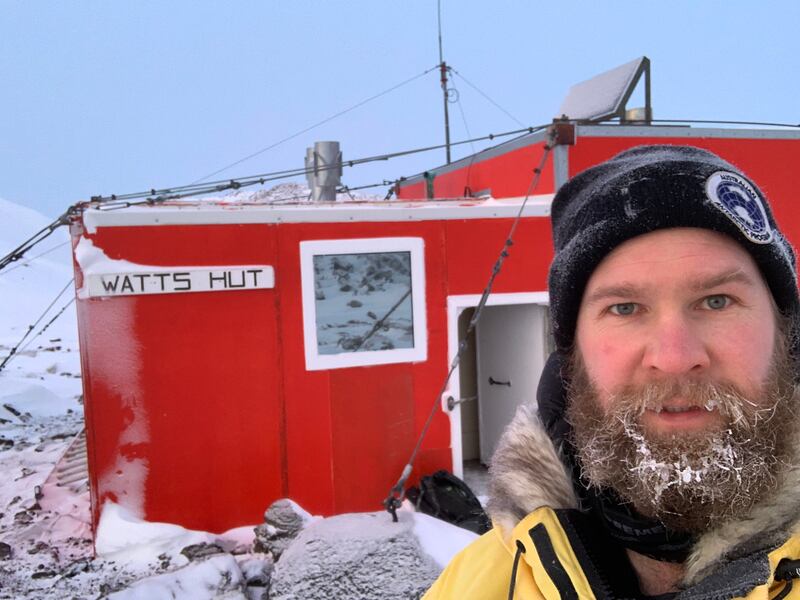It’s not uncommon to see a waddle of penguins, or a seal basking on the frozen white earth. Here at Davis Station, a research base on the Antarctic coast about halfway between Australia and Africa, the long summer days bring breathtaking views of wildlife, frontier and celestial spectacles, like sunsets over a horizon of icebergs.
But it’s March now, and summer is fading, as the rest of the world falls into a new kind of darkness. The summer residents have gone. Inside, station leader David Knoff gathers the 23 remaining researchers, scientists and other crew members in a small cinema to discuss the pandemic. It’s safe here, so far, but the usual banter is absent. All eyes fixate on him, as questions swirl about news from Australia and what sort of home they’ll all return to.
David, 35 with a bushy brown beard, came here expecting the cold and the darkness. He’d visited the continent on a private ski/mountaineering trip in 2016. He came back in October 2019 as a station leader with the Australian Antarctic Program, venturing down aboard an orange icebreaking vessel called the Aurora Australis. He’d often talk to friends and family back home about sports and how the world was getting on without him. Folks back home would ask about life in one of the world’s last frontiers.
He didn’t expect this isolated, desolate outpost 5,000 miles from his native Melbourne to become a refuge for normalcy. In January, as news of the coronavirus spread, the mood at Davis was downright cheerful. Residents, David recalls, generally felt relieved to be tucked away. Mandatory quarantines, travel restrictions and testing would keep coronavirus out.
Then messages started to trickle in from officials and ministers in the Australian Antarctic Division. So did communications with the mainland. The mood shifted. Roles reversed. Those safely stranded here struggled to comprehend the supermarket tussles, toilet paper shortages and social distancing requirements back home.
Here, in a crevice the virus can’t reach, life remained “normal.”
Their isolation has become their salvation. Residents celebrate birthdays together. They go to the gym, share the sauna, sit at the bar and take communal dips in the jacuzzi. “I think it’s made us appreciate our freedom down here even more,” David says. Of course he misses people, but even if he was home, he’d have a hard time visiting friends, watching sports events or adventuring. “I certainly feel like we are not missing out on anything,” he adds.
David was supposed to return to Australia this November, along with the rest of the crew. Now they’re likely stuck here for another summer season, bringing their total Antarctic time to over 500 days. And who knows after that?
If there’s no vaccine, will their immune systems be particularly vulnerable after prolonged isolation? Will the elite physical condition and lack of pre-existing health problems required for this job protect them at home? “Either way,” David says, “we can’t stay down here forever.”
He wonders how the world will look and how they’ll adapt. Will they start practicing social distancing here, just to get in the habit? Have they attended their last concert or rugby match without realizing it? What will become of their projects? Will they be more isolated at home than they are on the edge of the earth?
Sitting side-by-side in the cinema, mask-free, they look to David for answers as winter approaches, when a few hours of dim light in the afternoon will be a welcome break from the darkness.


